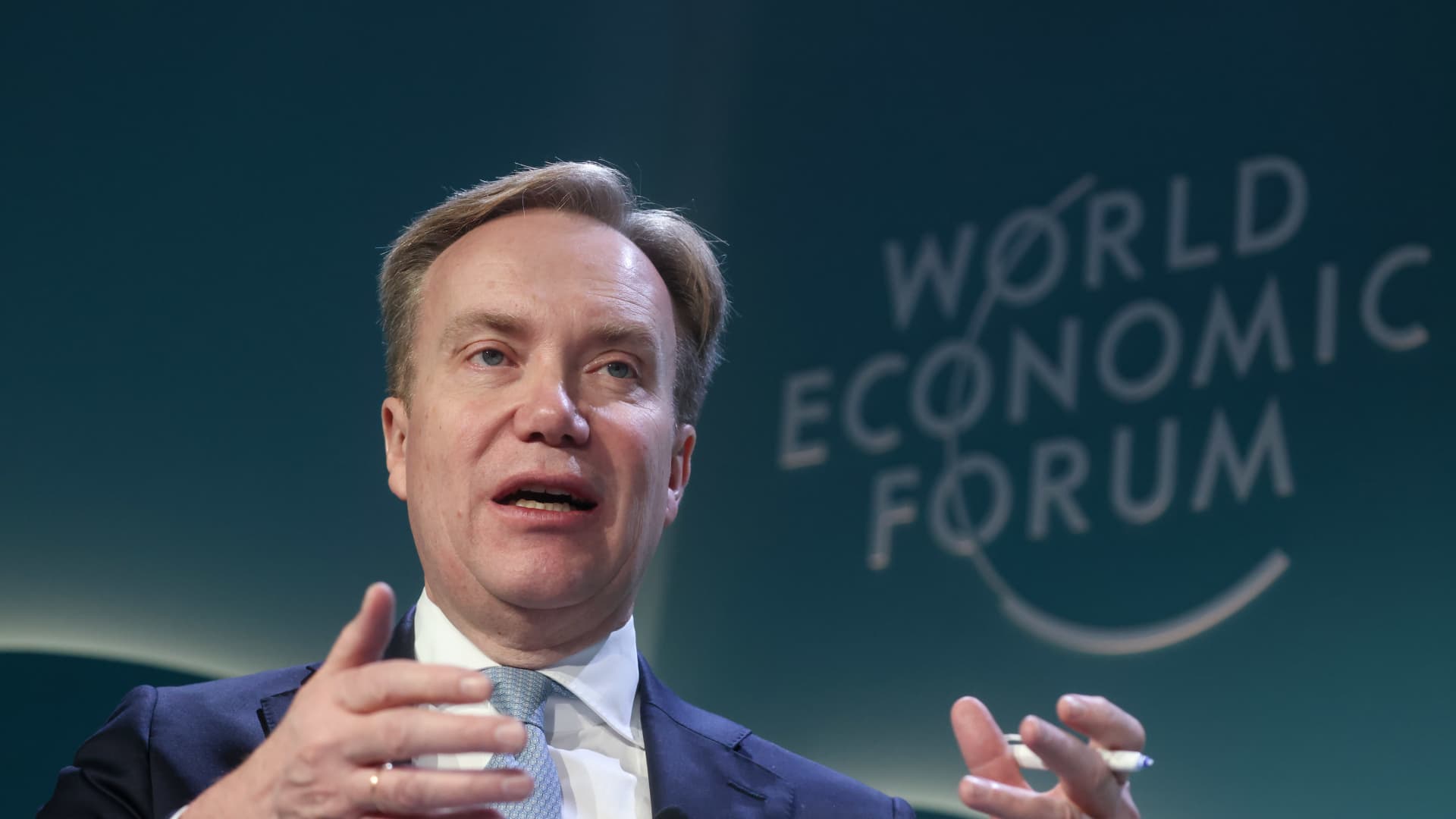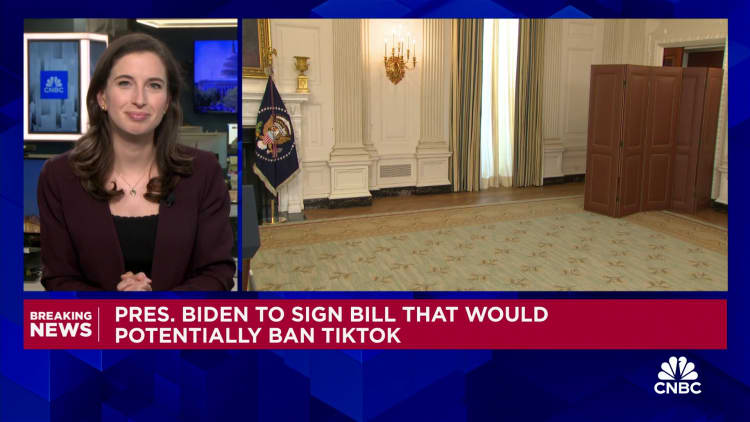Chancellor Olaf Scholz (SPD, rl), Robert Habeck (Alliance 90/The Greens), Federal Minister for Economic Affairs and Climate Protection, and Christian Lindner (FDP), Federal Minister of Finance, follow the debate at the start of the budget week.
Michael Kappeler | Picture Alliance | Getty Images
There was hardly any good news for the German economy. The latest economic data hasn’t changed much about that.
Some key data points for 2023, namely factory orders, exports and industrial production, were released last week, pointing to a weak end to the year with renewed questions about whether Germany is the “sick man of Europe.”
“The data confirms that German industry is still in recession,” Holger Schmieding, chief economist at Berenberg Bank, told CNBC.
Industrial production fell by 1.6% on a monthly basis in December and was 1.5% below the previous year’s value in 2023 overall. Exports – a key cornerstone of the German economy – fell 4.6% in December and 1.4% for the year, or 1.562 trillion euros ($1.68 trillion).
Meanwhile, factory orders data appeared promising at first glance, reflecting an 8.9% increase in December compared to November.
But that growth “doesn’t give much reason for reassurance,” Franziska Palmas, senior European economist at Capital Economics, told CNBC, explaining that it was thanks to several large orders that tend to be volatile. “Orders, excluding bulk orders, actually fell to post-pandemic lows,” she added.
For full-year 2023, factory orders fell 5.9% compared to the previous year.
While these “hard” data from December do not yet suggest a recovery is in sight, the latest Purchasing Managers’ Index report suggests the worst may soon be over in manufacturing, Schmieding said.
“Although the reading at 45.5 is still below the 50 line that separates growth from decline, it has risen to an 11-month high,” he noted.
Still, economic growth is unlikely to be imminent, Erik-Jan van Harn, global economics and markets macro strategist at Rabobank, told CNBC.
“We are still not nearly as active in German industry as we were before the pandemic,” he explained. “We still expect a slight decline in the first quarter, but this should be less severe than in the fourth quarter of 23,” van Harn said. He then expects a slight increase in growth, but sees growth for the year as a whole as stagnating.
Others are even more pessimistic about the German economy.
“We stick to our forecast that the German economy will contract by 0.3% for the full year 2024,” Commerzbank chief economist Jörg Krämer told CNBC.
This would be broadly in line with how the German economy performed in 2023, when it contracted 0.3% year-on-year, according to data released by the Federal Statistical Office last month. The data also showed a 0.3% decline in gross domestic product in the fourth quarter, yet Germany managed to avoid a technical recession marked by two consecutive quarters of negative growth.
This is due to the statistics office’s finding that the third quarter of 2023 saw stagnation rather than decline. However, if the economy were to contract in the first three months of 2024 as expected, Germany would actually enter a recession.
“Companies simply have too much to digest – global tariff increases, high energy prices, less tailwind from China and an erosion of Germany as a business location,” says Krämer, explaining the reasons for the downturn.
Some of these headwinds could also play a key role in weakening export numbers, Rabobank’s van Harn emphasized. Factors such as cheap energy from Russia, strong demand from China and growing global trade have boosted Germany’s exports for decades, “but now they are stalling,” he said.
Experts say that looking beyond pure economic policy could also pose a risk to the country’s economy in national and international politics.

Germany’s coalition government is under pressure after enduring a budget crisis after the Constitutional Court ruled that redistributing unused debt taken on during the pandemic into current budgets was unlawful.
This left a gap of €60 billion in the coalition’s budget plans and, with funds allocated for the next few years, the crisis is likely to peak again at the end of the year when budget planning for 2025 begins.
Voters’ satisfaction with the government is also low: the opposition party CDU is currently leading the polls, followed by Germany’s right-wing extremist party, the AfD. However, support for the latter has declined in recent weeks as protests against the far-right rage in the country and hundreds of thousands of Germans take to the streets.
Elsewhere, the US election could make things even more difficult, said Schmieding.
“Trade war threats from Trump could have a significant negative impact on Germany,” he said – although this of course depends on the outcome of the elections and may not fully unfold until 2025, he noted.
Source link
2024-02-12 06:10:35
www.cnbc.com









